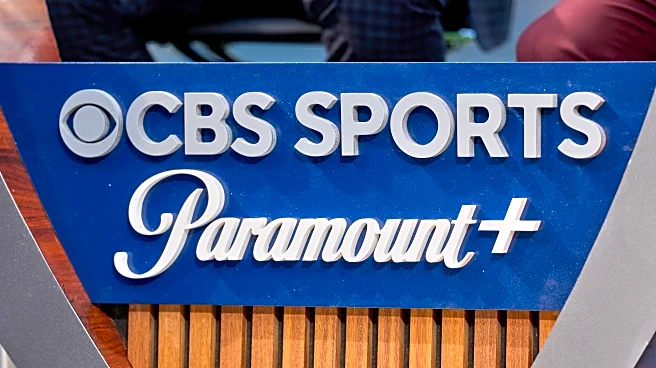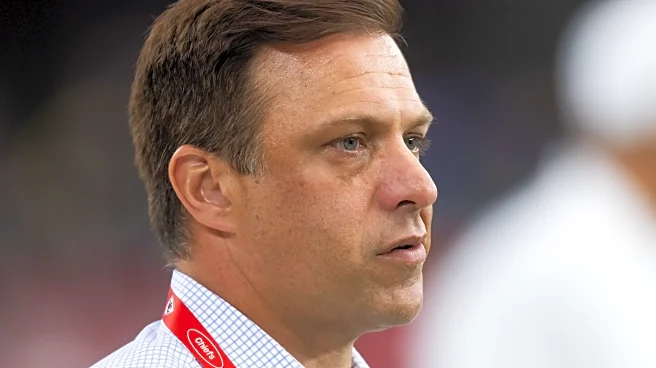What's Happening?
Dan Houser, co-founder of Rockstar Games, recently discussed the future of the Red Dead Redemption series during an appearance on the Lex Fridman podcast. Houser, who along with his brother Sam founded
Rockstar Games after Take-Two Interactive acquired BMG Interactive, expressed a deep personal connection to the Red Dead Redemption series. Despite the success of the Grand Theft Auto franchise, Houser revealed that the Red Dead series holds a special place in his heart due to its cohesive storytelling and emotional depth. He mentioned that while the Grand Theft Auto games are standalone stories, Red Dead Redemption offers a more interconnected narrative, particularly through the character of John Marston and his family. Houser's comments have sparked speculation about the potential for a Red Dead Redemption 3, although he did not confirm any plans for a new installment.
Why It's Important?
The Red Dead Redemption series is a significant part of Rockstar Games' portfolio, known for its rich storytelling and immersive gameplay. Houser's reflections on the series highlight its importance not only to fans but also to its creators. The potential continuation of the series could have substantial implications for the gaming industry, as new installments often drive significant sales and influence gaming trends. Additionally, Houser's comments about the emotional weight of the series suggest that any future developments would need to maintain the narrative depth that has endeared the series to its audience. The discussion also underscores the challenges creators face when deciding whether to continue a beloved series or leave it as a completed work.
What's Next?
While Houser did not confirm any plans for a new Red Dead Redemption game, his comments suggest that the series' future is uncertain. If Rockstar Games decides to pursue a new installment, it will need to carefully consider how to continue the story in a way that honors the existing narrative. Fans and industry analysts will likely be watching closely for any announcements from Rockstar Games regarding the series. The decision to continue or conclude the series will have implications for the company's strategy and could influence the direction of future projects.
Beyond the Headlines
Houser's discussion touches on broader themes of creative ownership and the emotional investment creators have in their work. His acknowledgment that he does not own the intellectual property of Red Dead Redemption highlights the complexities of creative work within large companies. This situation raises questions about the balance between creative freedom and corporate interests, as well as the impact of these dynamics on the development of beloved franchises. The potential continuation of the series by other creators could also lead to discussions about the preservation of artistic vision and the challenges of maintaining consistency in long-running series.











